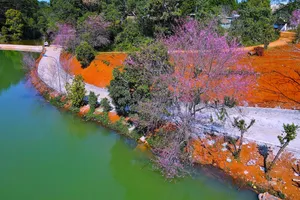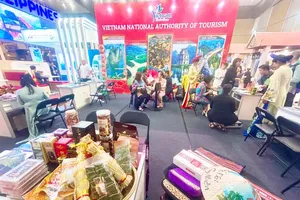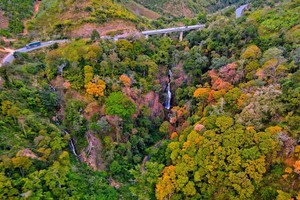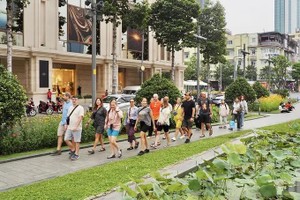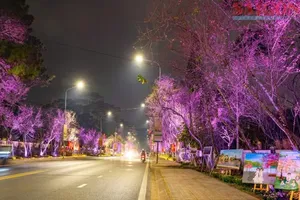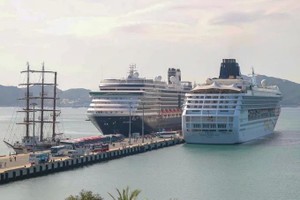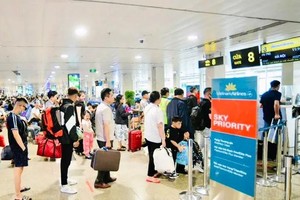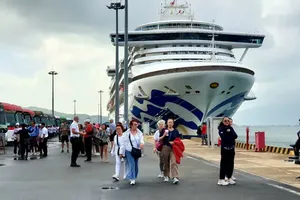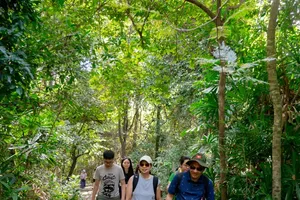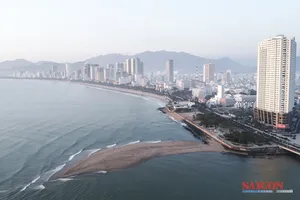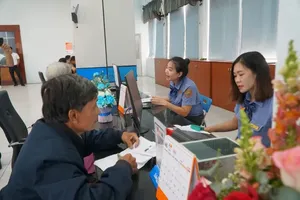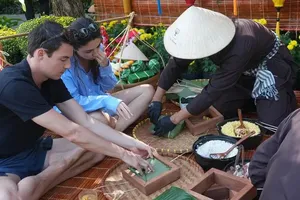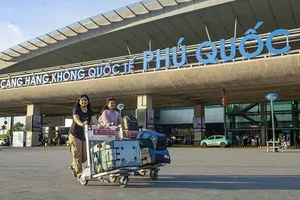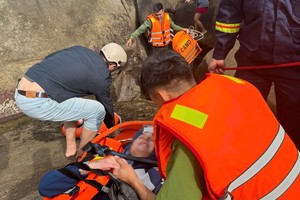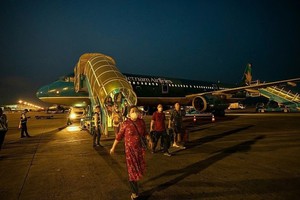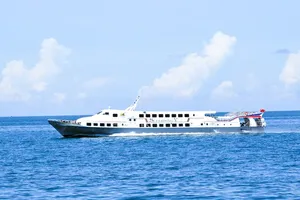However, poor infrastructure and fragmentation of development hinder tourism growth in several areas, leading to overcrowding and negative environmental impacts.
)
Four years after the last visit, Mr. Nguyen Thanh Tuyen, residing in Ho Chi Minh City, returned to Ham Tien – Mui Ne in Phan Thiet City, Binh Thuan Province. He expressed his disappointment with poor tourism services. There aren’t many services in Mui Ne, and tourists don’t have much to choose aside from swimming. The area sees a lack of nighttime tourism products, while the beaches are also littered with trash, he said.
Tourism expert Tran Anh Thi said that Mui Ne-Ham Tien in particular and Binh Thuan in general have a long coastline and experience less frequent thunderstorms, showing favorable conditions for tourism development. However, for over 20 years, foreign visitors have come to Mui Ne mainly to eat and sleep. The locality must improve the quality of tourism products and increase the number of public tourism services to attract travelers.
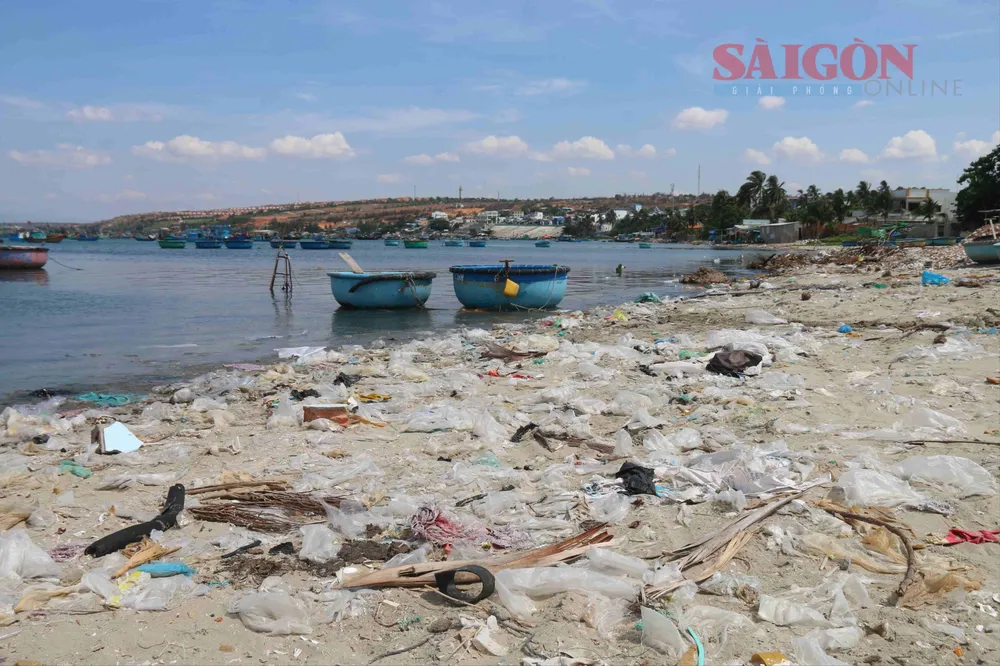
In 2019, Phu Quy Island District received 42,000 visitors and saw a sharp increase in the number of tourists to 155,000 in 2024. According to the Binh Thuan Province Tourism Association, Phu Quy Island currently has more than 100 hotels and homestays with nearly 2,800 beds. But the island mainly welcomes seasonal visitors, making it difficult for local businesses to operate sustainably and recover their operational costs.
Moreover, Phu Quy’s population of over 32,000 and a rapidly growing number of tourists have seriously affected the living environment of the island. The island is becoming overwhelmed by trash, a lack of clean water, and diversified tourism products, especially during peak periods like the summer season and national holidays, Mr. Tran Sung, an owner of an accommodation facility on Phu Quy Island, said.
Khanh Hoa Province, with over 380 kilometers of coastline, is home to Van Phong, Nha Trang, and Cam Ranh bays that have been named among the most beautiful bays in the world. However, Mrs. Akniyet, a tourist from Kazakhstan, expressed her disappointment in the shortage of entertainment areas and nightlife activities like other tourist cities in Asia. She has not immersed herself in more of the region’s traditional maritime culture yet.
According to Deputy Director of the Department of Culture, Sports, and Tourism of Khanh Hoa Province, Cung Quynh Anh, the province’s marine and island tourism is facing a wide range of issues, such as fragmented development, a lack of typical tourism products, the overexploitation of natural resources affecting sustainable growth, and the severe degradation of coral reefs and marine life in Nha Trang Bay negatively impacting tourism activities.
Towards green and sustainable tourism
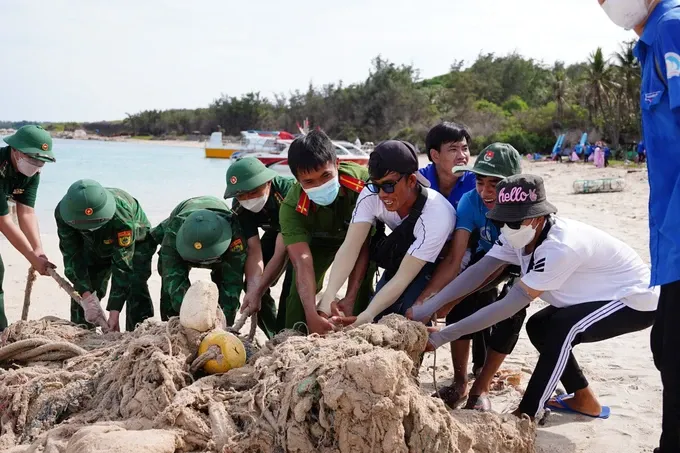
Tourism expert Tran Anh Thi said that in order to develop Ham Tien-Mui Ne and Binh Thuan tourism, it needs a generation of visionary leaders who can inspire and mobilize people toward achieving tourism targets, new unique tourism products to increase the length of stay for visitors, and solutions to effectively tackle waste and control environmental pollution.
Vice Chairman of the Binh Thuan Province Tourism Association, Tran Van Binh, noted that the nighttime economy development and exploitation of local culture and traditional craft villages aim to diversify the province’s tourism offerings in the locality. Particularly, the province should pay attention to MICE (meetings, incentives, conferences, and exhibitions) tourism to attract high-paying clients. In addition, it needs to reassess visitor segments for Phu Quy Island District’s tourism development to avoid getting overwhelmed.
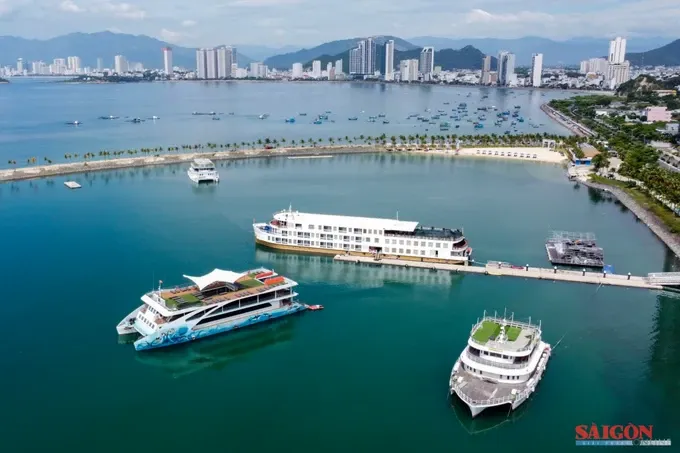
According to Deputy Director of the Department of Culture, Sports, and Tourism of Khanh Hoa Province, Cung Quynh Anh, after ten editions of the Nha Trang Sea Festival, the program has become the province’s typical cultural event honoring the beauty of Vietnam’s seas and islands.
He also highlighted the provincial People’s Committee’s pilot project of the green and sustainable community-based tourism development that has been implemented in Bich Dam quarter on Hon Tre Island, creating new tourism products and providing sustainable livelihoods for the residents as well as contributing to the conservation and development of marine biodiversity.
The Department of Culture, Sports, and Tourism of Khanh Hoa Province has advised the provincial People's Committee to approve a set of green tourism criteria, helping businesses align their operations with environmentally responsible practices, contributing to minimizing negative environmental impacts, and promoting the development of the green and sustainable tourism industry, Deputy Director of the Department of Culture, Sports, and Tourism of Khanh Hoa Province, Cung Quynh Anh, said.

